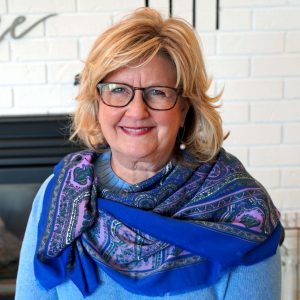There’s no doubt, determining the best care for a terminally-ill loved one can be daunting and incredibly taxing, especially when multiple family members and caregivers are involved. Family dynamics can play a significant role in helping—or potentially hindering—end-of-life care considerations for the person facing a life-limiting illness.
When we love deeply, our emotional reactions to situations involving those who are closest to us can become that much more intense in stressful circumstances. Although everyone involved in caregiving may have the best intentions, each person approaches a crisis situation differently, and this will affect your love one’s end-of-life journey. Unmanaged expectations and feelings often create tension and unnecessary hardship between otherwise well-intended family members during a delicate time.
This article highlights four strategies to help you work through challenging family dynamics when a loved one is terminally ill.
1. Plan Ahead
According to The Conversation Project, 90 percent of people believe talking with their loved ones about end-of-life care is important, but only 27 percent have actually done so. Death comes in its own way, in its own time. None of us can predict when our final day will arrive, but we can engage now in uncomfortable conversations with our loved ones to explore their end-of-life wishes and goals.
Part of the conversation with a loved one should include completing an advance directive and identifying someone (medical power of attorney) who can speak on your behalf to ensure your health care wishes are being followed if you’re unable to speak for yourself.
An advance directive is a written statement of your wishes, preferences, goals and values regarding end-of-life health care decisions. This includes discussing aggressive treatment versus comfort care. Discuss important topics, such as: What is your loved one’s ultimate goal for the end of his or her life? How does your loved one measure quality of life?
Hospice of the Red River Valley Social Worker Cathy Miller shares how she helps family members work through end-of-life discussions. “It’s a lot of support and encouragement for the person who is tasked with following the loved one’s wishes,” she said. “I like to offer scenarios for families and reframe the situation to help families see the big picture.”
Advance directives are not just for the elderly; anyone 18 years and older should complete an advance directive. By doing so, individuals and their loved ones are able to have tough conversations well before the directive is actually needed.
For families who share the caregiving responsibilities, it may also be helpful to identify who will handle other important items, such as hands-on care, finances, long-term living arrangements and funeral planning, for your terminally ill loved one. Having family roles defined before a crisis can help provide a clearer vision to carry out your loved one’s wishes to the end.
2. Clear Communication
When multiple family members are separated by distance or have different ideas about the care they have each envisioned for their loved one, many issues can arise. Additionally, each person has his/her own unique relationship with the terminally ill individual, potentially making the situation even more complicated.
Cathy suggests the best way to stay focused on your loved one is to engage in clear communication, active listening, mutual respect and setting expectations among all caregivers. “Get everyone in the same room together, or on a call together, so everyone hears the same information about their loved one’s care,” she explained. “People just want to be heard. Try to stay open to hear what others have to say and acknowledge how they feel.”
“I always encourage families, if they have the ability, to come and visit their dying loved one. Don’t wait,” Cathy said. “As a part of the dying process, the person’s health starts declining and his or her ability to communicate with other people also declines. I always tell families to try not to have any regrets at the end. Come and resolve any issues; say what you have to say, do what you have to do.”
Often when family members who live far away come see their loved one, they get a more accurate picture of what has been going on and understand firsthand what it has been like for the people who have been providing the hands-on care. This can make a significant difference in everyone’s interpretation of the situation.
“Our imagination is an incredible thing, and sometimes you have in your mind what’s going on, and you either make the situation better or worse than it really is,” Cathy shared. “I think we can always make at least some sort of progress or headway if we can get family members on the same page.”
3. It’s Not About You: Be an Advocate
Whether it’s a sudden death or a prolonged death, no one is ever ready to lose someone they deeply love. This journey is about your loved one, no one else. One of the greatest gifts you can give to your loved one is acknowledging and advocating for what he/she wants at end-of-life.
Cathy shares, “Everybody gets to do this once. So if everybody gets to do it once, can’t they do it the way they want?” Honoring your loved one’s wishes for end of life may be painful for you or not what you had in mind, but it is still his or her decision to make. Keeping your loved one’s desires at the center of all decision making, whatever that looks like, can help everyone stay focused on fulfilling your dying loved one’s goals.
Sometimes agreeing to disagree might be the right answer for the circumstances. For those facing a chronic illness, they have been living with the symptoms for quite some time, and they most likely know what they want and don’t want for the future.
4. Seek Assistance
For family members who are actively caring for a dying loved one, this can be an extremely overwhelming time, making many people feel a sense of helplessness. It is important to listen to them and address any adversity and issues that arise. Family caregivers should be encouraged to ask for help and seek out additional ways to support your dying loved one. Help can come in many forms, including licensed professionals who specialize in identifying resources and extra assistance.
As a licensed social worker at Hospice of the Red River Valley, Cathy spends much of her time building positive rapport and relationships with families. “We are coming into their homes, and they know nothing about us. Why should they trust us? Why should they tell us their personal and most intimate thoughts, feelings and fears,” she said. “It’s a matter of getting someone comfortable with you. Every family is different, and you have to meet them where they are at.”
Hospice social workers help manage the stress families face while caring for a terminally ill loved one. They understand the emotional aspects of late-stage illnesses and are sensitive to both the patient and family’s needs. They can also identify local and county services and resources for additional support. “Sometimes people are so overwhelmed and don’t realize help is out there,” Cathy said. “We can help make the appropriate calls and get them the extra assistance and equipment they need.”
Remember you are not alone. There are resources and people available for help. Now is your opportunity to be a part of the conversation with your loved ones about what you want for your end of life, and likewise, for your loved ones to share that with you.
“It is the most rewarding thing to be able to see a patient at peace and for a family to come full circle,” Cathy said.
About Hospice of the Red River Valley
In 1981, Hospice of the Red River Valley was founded on the belief that everyone deserves access to high-quality end-of-life care. We fulfill our nonprofit mission by providing medical, emotional, personal and spiritual care, as well as grief support to our patients, their families and caregivers during a tender time in life. Our staff helps those we serve experience more meaningful moments through exceptional hospice care, 24 hours a day, 365 days a year, wherever a patient calls home. The organization serves more than 40,000 square miles in North Dakota and Minnesota, including in and around Bismarck, Detroit Lakes, Devils Lake, Fargo, Fergus Falls, Grand Forks, Lisbon, Thief River Falls, Valley City and many more communities. Hospice of the Red River Valley offers round-the-clock availability via phone, prompt response times and same-day admissions, including evenings, weekends and holidays. Contact us anytime at 800-237-4629 or hrrv.org.



